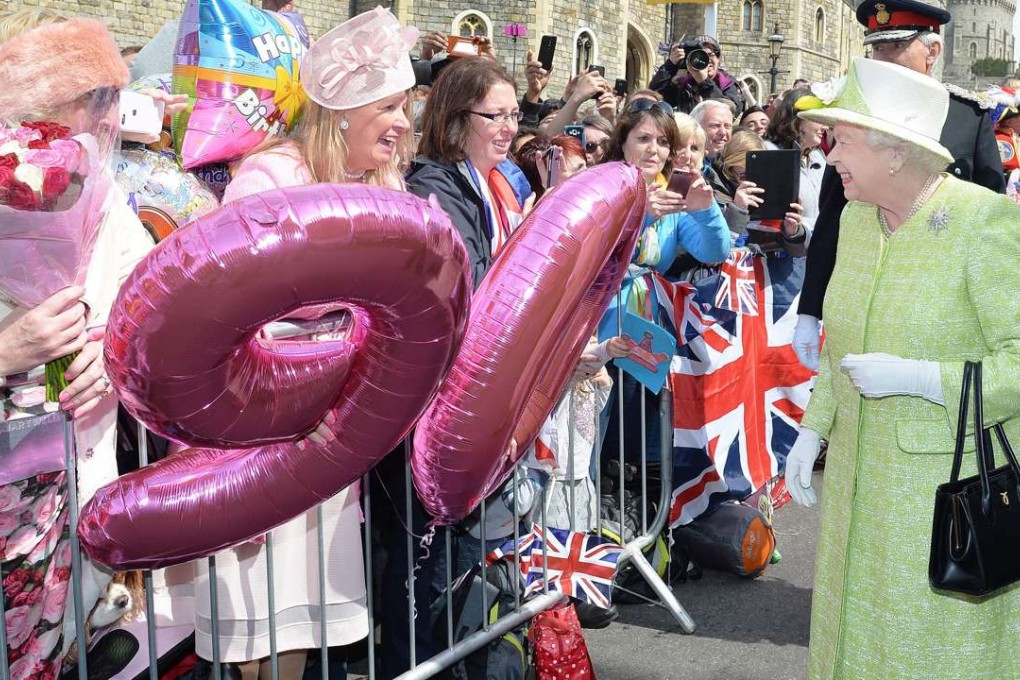Outside In | Queen has seen world become more stable over past 90 years
Britain’s constructive membership of the European Union must surely be central to her legacy

As Britain’s Queen Elizabeth sipped a hard-earned glass of champagne over lunch yesterday with US President Barack Obama, a day after celebrating her 90th birthday, after 64 years on Britain’s throne, it is timely to think of the awesome longevity that has made her one of the world’s most respected diplomats. What a neophyte Obama must feel.
She was the first British monarch to address the US Congress, and Obama had not even graduated from Harvard Law School
For someone like myself, who is starting to notice the greying around the temples, the first and most satisfying aspect of her birthday weekend is that you can be 90 and still be useful. In this, she is not alone. Former US president Jimmy Carter still earns his keep as a global peacemaker aged 92, and Henry Kissinger still earns tidy sums for speeches aged 93. Alan Greenspan – who history will doubtless thank for the “great moderation” that lulled us sleepwalking into the 2008 “great recession” and all the pain that has followed – was a one-month-old babe in nappies in New York when Elizabeth Alexandra Mary Windsor was born on a thoroughly uncharismatic dull, wet and mild springtime day in London.
The second thought about her Obama lunch at Windsor Castle is just how long her relationship is with the United States. It is 59 years since her first 1957 state visit to the US (where she also addressed the UN General Assembly). And it is 25 years since “the talking hat” addressed a joint session of the US Congress – at 162.5cmshe could barely see over the lectern. She was the first British monarch to address the US Congress, and Obama had not even graduated from Harvard Law School.
Like Kissinger or Carter, the queen is also a living reminder of how in general terms the world has changed for the better – and of how so many of today’s terrible problems have all been tackled and overcome – before. The damage wrought by the first world war as still strongly felt in Britain and across Europe. Times were hard and turbulent. As she was being born on that dull London day in 1926, trade union militants launched a 10-day general strike across Britain that led to the imposition of martial law. She was just three when the Great Depression engulfed the American and European economies. I wonder what parallels she might draw as we enter the 8th year of our “great recession”.
Most strikingly, she must quietly celebrate the gradual stabilisation that has been forged across the world since the awful global chaos through the early decades of the 20th century. And here, I am not simply thinking about Adolf Hitler and the conflict in Europe that provided a backdrop to the first two decades of her life. I am thinking also about the stabilisation that has occurred closer to home here in Hong Kong.
Sun Yat-sen had just died, and the ascendant Chiang Kai-shek had just been announced the supreme warlord of Canton. He was on the point of creating the National Revolutionary Army. China collapsed into civil war when she was just a year old – though I am sure she was not aware of that at the time, however good her education. Japan formally invaded China in 1931, plunging the country into almost two decades of bloodshed that has rarely been matched anywhere in the world.
